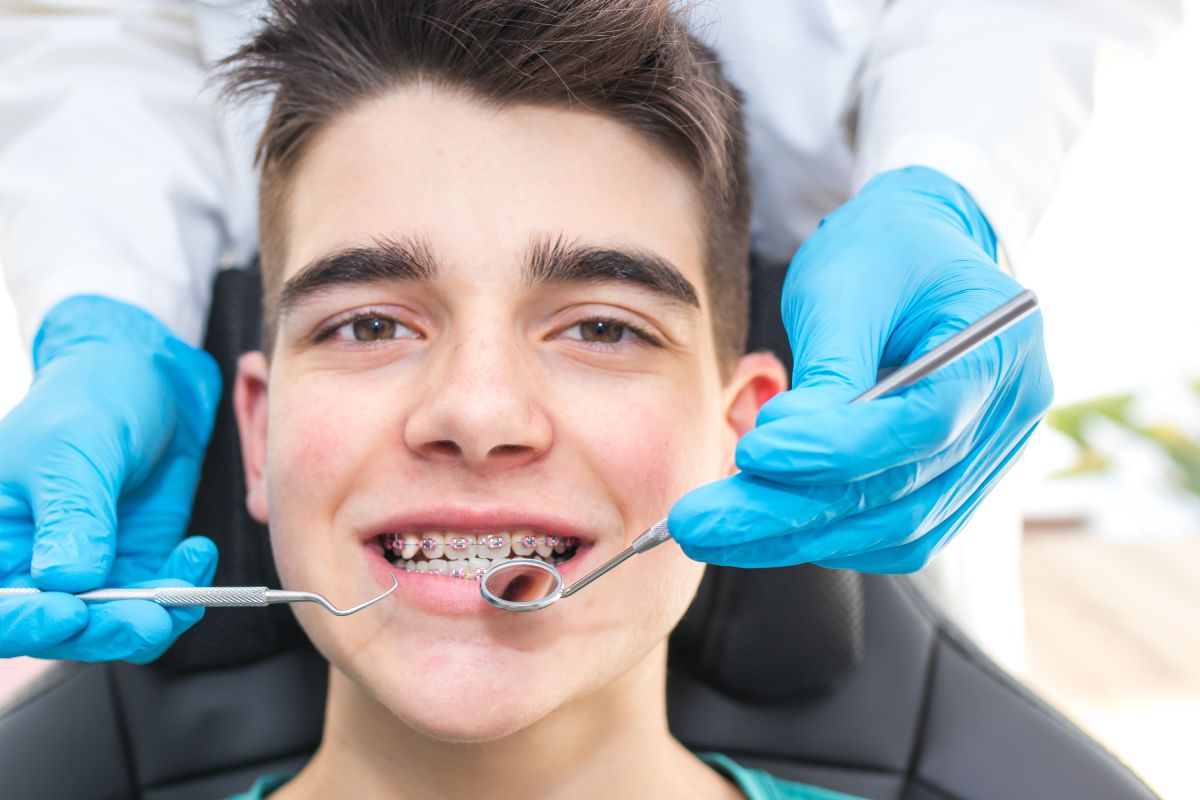Indicators on Causey Orthodontics You Should Know
Indicators on Causey Orthodontics You Should Know
Blog Article
All About Causey Orthodontics
Table of ContentsIndicators on Causey Orthodontics You Need To KnowHow Causey Orthodontics can Save You Time, Stress, and Money.How Causey Orthodontics can Save You Time, Stress, and Money.Some Of Causey Orthodontics4 Easy Facts About Causey Orthodontics ExplainedSome Known Questions About Causey Orthodontics.The Ultimate Guide To Causey Orthodontics
What is the difference in between a dental expert and an orthodontist? All dentists, including orthodontists, treat the teeth, periodontals, jaw and nerves.
You can think of both doctors who deal with gum and teeth issues. The primary difference is that becoming an orthodontist calls for a specific specialty in treating the misalignment of the teeth and jaw.
What Does Causey Orthodontics Mean?
An orthodontist is a dental practitioner that has undertaken training to specialize in the diagnosis, prevention and treatment of abnormalities in the jaw and teeth. They can also recognize potential troubles in teeth positioning that might develop when problems are left without treatment (best orthodontist).
This consists of all the necessary education and learning to end up being a general dentist. According to the American Trainee Dental Association (ASDA), it indicates you will need to have either a Physician of Medicine in Dentistry (DMD) or a Doctor of Oral Surgery (DDS). Simply put, orthodontists need to finish dental school and after that obtain an orthodontics specialized education.
Some orthodontists also get their masters in craniofacial biology. affordable orthodontist near me (http://www.northlandhq.com/directory/listingdisplay.aspx?lid=57494). Numerous dental institutions provide limited orthopedic training and guideline, which is why basic dentists need to go to orthodontic institution after college graduation. Orthodontic residency programs supply intensive training for this type of oral expertise. These programs concentrate on two specific locations or disciplines: Dentofacial Orthopedics: This research focuses on guiding teeth and jaw growth.
The Basic Principles Of Causey Orthodontics

 These consist of apparatus such as dental braces, retainers and Invisalign. So, what does an orthodontist do, and what do they concentrate on? The general objective of an orthodontist is to boost a person's bite. Not everybody is birthed with straight teeth, and an orthodontist will guarantee that people get evenly spaced straight teeth.
These consist of apparatus such as dental braces, retainers and Invisalign. So, what does an orthodontist do, and what do they concentrate on? The general objective of an orthodontist is to boost a person's bite. Not everybody is birthed with straight teeth, and an orthodontist will guarantee that people get evenly spaced straight teeth.
The Ultimate Guide To Causey Orthodontics
The American Association of Orthodontists suggests your first check up by age 7. You'll need to see your orthodontist if you have an imbalance in your teeth, additionally known as malocclusion. If you notice irregular bite patterns, a somewhat irregular jaw, or when your teeth are jammed, you will likely require orthodontic treatment.
In addition, we use adjustable therapy routines, adaptable payment alternatives and a fun, delightful experience.
An orthodontist is a dentist trained to diagnose, prevent, and treat teeth and jaw irregularities. Orthodontists work with people of all ages, from kids to adults (https://unsplash.com/@causeyortho7/likes).
Some Known Questions About Causey Orthodontics.
Malocclusion, or misaligned teeth, can lead to oral issues, including dental cavity, gum condition, and challenging or agonizing eating. Yet not everybody is birthed with straight teeth. If you have a negative bite or large rooms in between your teeth, you might wish to get in touch with a dental practitioner concentrating on orthodontic treatment.
(Picture Credit Rating: DigitalVision/Getty Images) Orthodontists use dealt with and detachable oral gadgets, like dental braces, retainers, and bands, to transform the setting of teeth in your mouth. Orthodontic therapy is for oral problems, consisting of: Crooked teethBite troubles, like an overbite or an underbiteCrowded teeth or teeth that are also much apartJaw misalignmentThe goal of orthodontic treatment is to improve your bite.
Not known Details About Causey Orthodontics

, yet not all dental professionals are orthodontists. They concentrate on 2 areas: How to correctly and securely relocate teeth How to effectively lead growth in the teeth, jaw, and faceOnce an orthodontist has actually completed training, they have the option to come to be board accredited.
Malocclusion leads to tooth congestion, an irregular jaw, or uneven bite patterns. Malocclusion is usually treated with: Your orthodontist connects steel, ceramic, or plastic square bonds to your teeth.
Not known Details About Causey Orthodontics
Some individuals need a headwear to assist move teeth right into line with pressure from outside the mouth. A retainer is a custom gadget that keeps your teeth in place.
Report this page